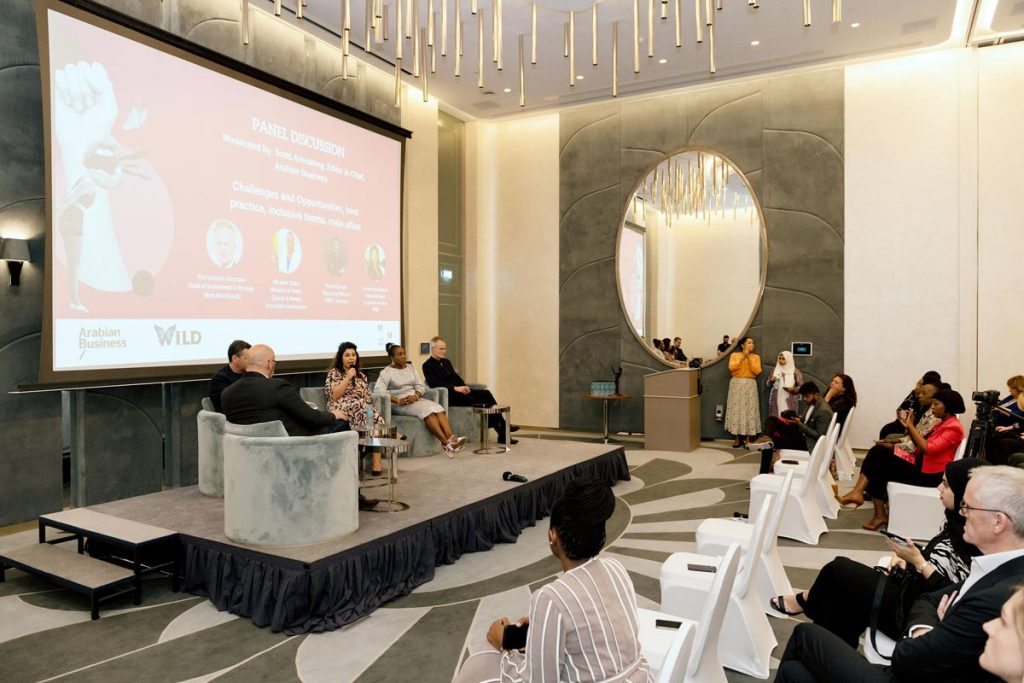Companies that invest in diversity and inclusion, across genders and cultures, will see that reflected positively on their bottom line, acording to panellists discussing the challenges and opportunities of an inclusive team at Feminism Defined: Bringing All to the Conversation of Gender Equality.
Whether through quotas or making the conscious decision to have more women on the team, action, not words, is needed to see results.
“If you just look at the numbers, you can tell that where you have high performance, you’re guaranteed to have a diverse team across culture and gender, this is a 100 percent correlation. If you look at high performing projects, I can guarantee to you that the team working on them will be across gender and culture, and the reverse also applies when you see a project performing poorly,” explained Christopher Seymour, head of investment and strategy, Mott Macdonald.
“Engineering consultancy is famous for being male-biased. In our company, around 30 percent of our staff are female and to me, that’s absolutely not good enough. We don’t actually aim for a number because this is not about numbers but our target can’t be anything other than 50 percent [women] because the world is 50/50,” he continued.
Echoing Seymour, Kerem Cengiz, managing director, LWK and partners said: “The return on investment…it’s needless to say, it’s obvious. The outcomes of successful projects and successful engagements with the stakeholders that we work with, is always better when we have a diverse team. Ultimately, we’re working with a number of institutional clients here and the best performing products are those that are gender mixed, and diverse and actually led by female architects.”
“The return on investment absolutely has to be a natural fit but I think as a leader, one has to be conscious that it’s not going to happen on its own. We have to make choices and we have to sometimes understand that those choices are not easy ones. But we can’t just expect it to happen: We have to make a commitment and engage,” he added.
And while quotas would be one way to ensure that women are represented in leadership positions, Seymour highlighted the importance of being “pragmatic so it does not end up in tokenism and a numbers game where we just put some women on board.”
Instead, it would be better to “ turn this question on its head and ask what are we doing about women?” said Marie-Celine Zialor, Minister for Sports, Youth and Family, Seychelles Government.
“There is an existing ecosystem, and it’s going to take a while, but it could be that if those of us who are conscious and who can do something about it start something that is women friendly as well as men friendly, then they create a new culture of corporate in the world. This is this is my goal,” she continued.
Changing biases and promoting diversity and inclusion is a long journey, but one that has to begin with actions, the panellists agreed.
“Seychelles is a matriarchal society but there are still biases, stereotypes and social conditioning and I suppose these are the challenges that we face every day. I don’t think any girl or any women needs to get powerful – we’re born powerful – it is the world and societies that need to change to give power,” said Zialor.

“Having that kind of belief growing up and showcasing diversity as something which we need to stop talking about and start doing is important in order to change societies and not have your chromosomes become a barrier for wanting to be a mother and a professional athlete at the same time, for example,” she continued.
Feminism Defined was organised by WILD, Women in Leadership Deliver, to raise awareness and engage conversations on gender equality in the workplace.
“But societies and the world will need to change the systems that allow these biases to perpetuate. Because as human beings we are very creative so hopefully we can all co-create together a support system where, it doesn’t matter who you are, everyone has the abundant life that they deserve,” added Zialor.







